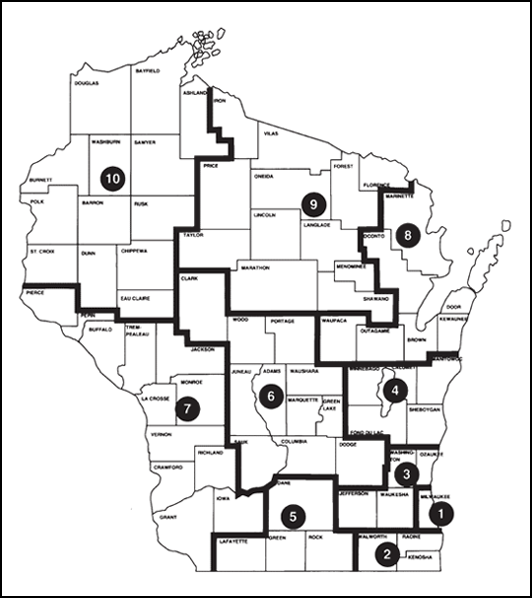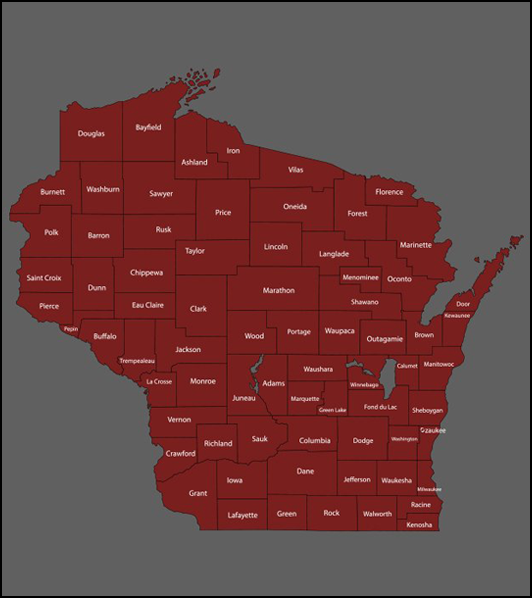Charges can vary from the type of license you have to the level of OWI you are facing. Penalties can also depend upon the quality of representation you have as well. The difference between an average attorney and a specialist in OWI can mean the difference in your case. Don’t be under-represented because you incorrectly believe that all attorneys are the same. Below is a breakdown, generally, by the level of offense.
Any Measurable Amount of Alcohol – Commercial Driver’s License (CDL) Penalty
Your CDL will be Out-of-Service for 24 hrs
You will be fined $10, plus court costs
You are subject to 24-hour license seizure of your Class D/M license
There is no occupational license for your Class D/M license
PAC.04% or Greater but .08% or Less (First) – Commercial Driver’s License (CDL) Penalty:
Your CDL will be Out-of-Service for 1 year, or 3 years if hauling hazardous materials requiring a placarding
You will be fined $150-$300, plus court costs
You are subject to 24-hour license seizure of your Class D/M license
You will be eligible for an occupational license for your Class D/M license after 15 days
PAC.04% or Greater but .08% or Less (Second) – Commercial Driver’s License (CDL) Penalty:
There is a lifetime disqualification of your CDL
You may be incarcerated for between 5 days to 6 months in jail
You will be fined $300-$1,000, plus court costs
You are subject to 24-hour license seizure of your Class D/M license
You will be eligible for an occupational license for your Class D/M license after 15 days
FPAC.04% or Greater but .08% or Less (Third or Subsequent) – Commercial Driver’s License (CDL) Penalty:
There is a lifetime disqualification of your CDL
You may be incarcerated for between 45 days to 1 year in jail
You will be fined $600-$2,000, plus court costs
You are subject to 24-hour license seizure of your Class D/M license
You will be eligible for an occupational license for your Class D/M license after 15 days
PAC.04% or Greater but .08% or Less (Causing Injury) – Commercial Driver’s License (CDL) Penalty:
Your CDL will be disqualified for 1 year, or 3 years if hauling hazardous materials requiring placarding, or lifetime for 2nd offense
You may be incarcerated for between 30 days to 1 year in jail
You will be fined $300-$2,000, plus court costs
You are subject to 1-year revocation of your Class D/M license
You will be eligible for an occupational license for your Class D/M license after 15 days
PAC.04% or Greater but .08% or Less (Causing Injury & Prior .04%-.08% Violation or Prior OWI Conviction) – Commercial Driver’s License (CDL) Penalty:
Your CDL will be disqualified for 1 year, or 3 years if hauling hazardous materials requiring placarding, or lifetime for 2nd offense
You may be incarcerated for between 6 months to 6 years in prison
You will be fined $600-$10,000, plus court costs
You are subject to 1-year revocation of your Class D/M license
You will be eligible for an occupational license for your Class D/M license after 15 days
PAC.04% or Greater but .08% or Less (Causing Great Bodily Harm) – Commercial Driver’s License (CDL) Penalty:
Your CDL will be disqualified for 1 year, or 3 years if hauling hazardous materials requiring placarding, or lifetime for 2nd offense
You may be incarcerated for between 6 months to 6 years in prison
You will be fined up to $25,000, plus court costs
You are subject to 2-year revocation of your Class D/M license
You will be eligible for an occupational license for your Class D/M license after 120 days or, if 2 or more offenses within 5 years, after 1 year
PAC.04% or Greater but .08% or Less (Causing Death) – Commercial Driver’s License (CDL) Penalty:
Your CDL will be disqualified for 1 year, or 3 years if hauling hazardous materials requiring placarding, or lifetime for 2nd offense
You may be incarcerated for between 6 months to 40 years in prison
You will be fined up to $100,000, plus court costs
You are subject to 5-year revocation of your Class D/M license
You will be eligible for an occupational license for your Class D/M license after 120 days or, if 2 or more offenses within 5 years, after 1 year
Refusal – Commercial Driver’s License (CDL) (First) Penalty:
Your CDL will out of service for 24 hours, disqualified for 1 year (343.315(2)(a), or 3 years is hauling hazardous materials requiring a placarding
You are subject to 1-year revocation of your Class D/M license
You will be eligible for an occupational license for your Class D/M license after 30 days
Refusal – Commercial Driver’s License (CDL) (Second w/in 10 years) Penalty:
There is a lifetime disqualification of your CDL
You are subject to 2-year revocation of your Class D/M license
You will be eligible for an occupational license for your Class D/M license after 90 days or, if 2 or more offenses within 5 years, after 1 year
Refusal – Commercial Driver’s License (CDL) (Third Offense Lifetime) Penalty:
There is a lifetime disqualification of your CDL
You are subject to 3-year revocation of your Class D/M license
You will be eligible for an occupational license for your Class D/M license after 120 days or, if 2 or more offenses within 5 years, after 1 year
Charges can vary from the type of license you have to the level of OWI you are facing. Penalties can also depend upon the quality of representation you have as well. The difference between an average attorney and a specialist in OWI can mean the difference in your case. Don’t be under-represented because you incorrectly believe that all attorneys are the same. Below is a breakdown, generally, by the level of offense.
Refusal (First)
There are 0 demerit points on your license, your driver’s license will be revoked for 1 year, and you have to wait 30 days before you are eligible for an occupational license, then you may get one as long as you obtain an SR22 high-risk rider insurance policy
Your vehicle will be required to be equipped with an Ignition Interlock Device
You have to have an alcohol assessment (AODA)
Refusal (Second)
There are 0 demerit points on your license, your driver’s license will be revoked for 2 years, and you have to wait 90 days (or 12 months if 2 or more offenses in 5 years) before you are eligible for an occupational license, then you may get one as long as you obtain an SR22 high-risk rider insurance policy
Your vehicle will be required to be equipped with an Ignition Interlock Device
You have to have an alcohol assessment (AODA)
Refusal (Third)
There are 0 demerit points on your license buy your driver’s license will be revoked for 3 years, and you have to wait 120 days (or 12 months if 2 or more offenses in 5 years)
before you are eligible for an occupational license, then you may get one as long as you obtain an SR22 high-risk rider insurance policy
Your vehicle will be required to be equipped with an Ignition Interlock Device
You have to have an alcohol assessment (AODA)
Refusal – Commercial Driver’s License (CDL) (First) Penalty:
Your CDL will out of service for 24 hours, disqualified for 1 year (343.315(2)(a), or 3 years is hauling hazardous materials requiring a placarding
You are subject to 1-year revocation of your Class D/M license
You will be eligible for an occupational license for your Class D/M license after 30 days
Refusal – Commercial Driver’s License (CDL) (Second w/in 10 years) Penalty:
There is a lifetime disqualification of your CDL
You are subject to 2-year revocation of your Class D/M license
You will be eligible for an occupational license for your Class D/M license after 90 days or, if 2 or more offenses within 5 years, after 1 year
Refusal – Commercial Driver’s License (CDL) (Third Offense Lifetime) Penalty:
There is a lifetime disqualification of your CDL
You are subject to 3-year revocation of your Class D/M license
You will be eligible for an occupational license for your Class D/M license after 120 days or, if 2 or more offenses within 5 years, after 1 year
Below is the judicial district map of Wisconsin showing how the districts are divided.




